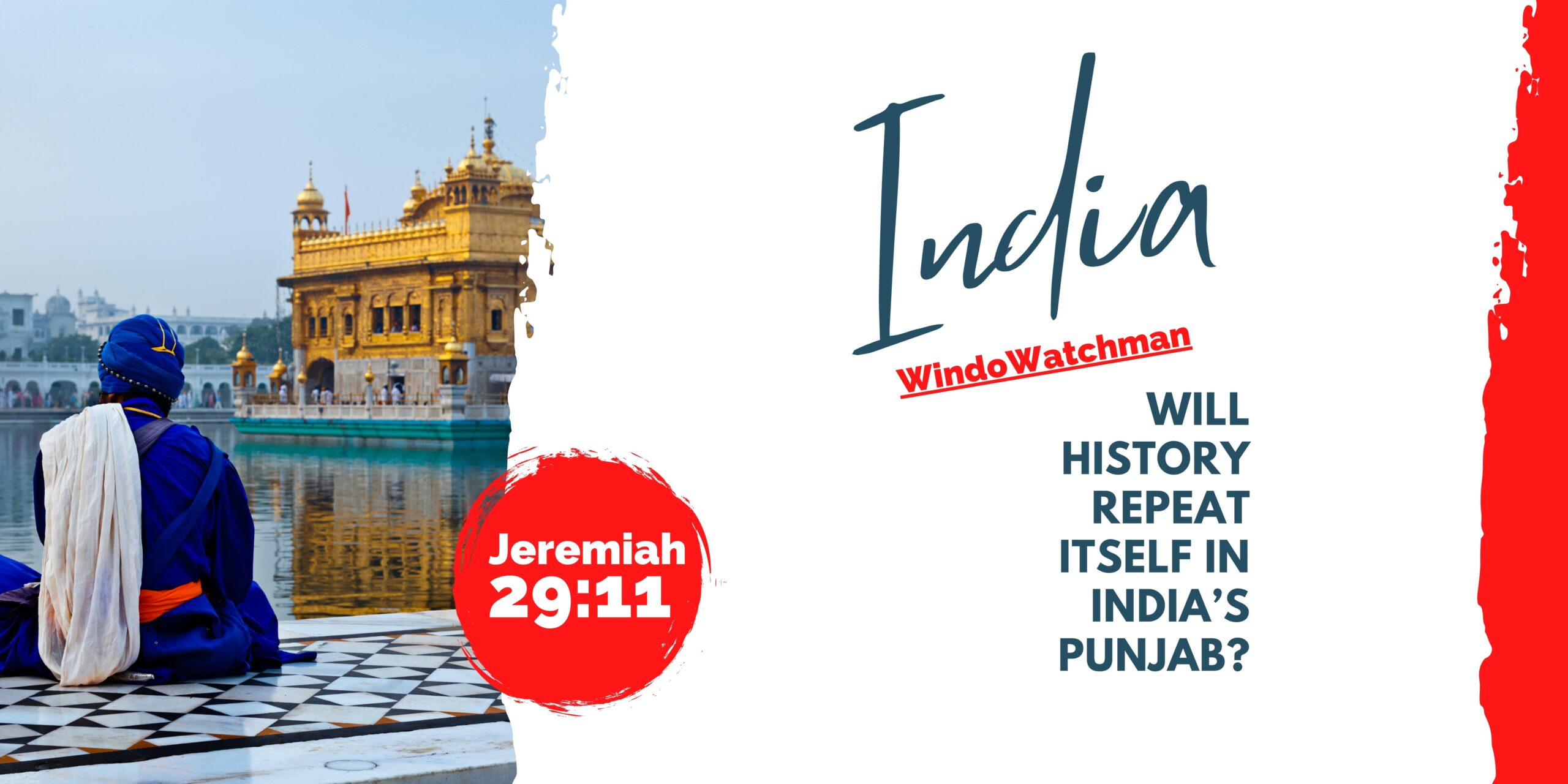Will History Repeat Itself in India’s Punjab?

Population: 1.3 billion
Dominant religion: Hinduism
Christian: 2.2 percent
Evangelical: Unknown
Why would Sikhs want their home state, Punjab, to break away from India? There are several reasons. When India gained its independence from Great Britain on August 15, 1947, Muslims soon separated into a different nation. Yet Sikhs remained in Hindu-dominated India. Some Sikhs wanted their own nation, even though they only had a 60 percent majority in India’s Punjab state.
Much has happened since 1947. There was the Green Revolution in the 1960s-70s which made Punjab India’s breadbasket. Today they produce 20 percent of India’s wheat and nine percent of their rice, largely because of the efforts of Sikh landowning farmers. However, Sikhs don’t think they get their fair share of political power or water rights. Though Punjab produces much wealth, there are high unemployment and drug addiction rates in Punjab. Politicians have not come close to finding solutions. India’s reigning BJP favors Hindus over other religious communities. The unemployed, the poor and the marginalized are looking for change.
Enter Sikh activist Amritpal Singh to stir up a hornet’s nest. This Sikh preacher supported a protest by Sikh farmers, and many credited him for getting concrete results from India’s government in November 2021. However, his fiery speeches also call for Punjab’s succession from India to form the Sikh-dominated nation of Khalistan. In February, hundreds of his gun and sword bearing thugs stormed a police station. The conflict continued to grow between this Sikh separatist and the Indian government. On March 18 he escaped from the police after a high speed chase. At the time of this writing in April, he is still at large. Along with a large following in India, Sikhs have responded in Canada, the United States and Great Britain.
Why is Amritpal Singh a threat to India? He is imitating the Sikh separatist leader Jarnail Singh Bhindranwale. This man led an insurgency in the 1980s, which led to thousands of deaths. Singh Bhindranwale and his supporters stashed arms in the Golden Temple, the primary shrine of Sikhism. In 1984, Indian Prime Minister Indira Gandhi sent the military to storm the shrine, leading to hundreds of deaths. The shrine was severely damaged in the battle, enraging most Sikhs. The prime minister’s Sikh bodyguards soon assassinated her, and they slaughtered thousands of Sikhs in retaliation.
Words have consequences. Singh suggested that India’s Home Minister Amit Shah will meet the same fate as Indira Gandhi if he tries to stop this movement. Will history repeat itself?
SOURCE:
The Soufan Center. IntelBrief: Manhunt for Sikh Leader Revives Concerns about a New Khalistan. April 3, 2023.
Down to Earth. The Green Revolution and a dark Punjab. July 16, 2020
BBC News. Who is controversial Indian preacher Amritpal Singh? March 20, 2023.
Time. India’s Manhunt for a Hardline Sikh Leader Leads to Internet Shutdowns and Global Protests. March 23, 2023.
IndiaTVNews. ‘Amit Shah will meet same fate as that of Indira Gandhi if…’: Khalistan supporter Amritpal threatens HM. February 23, 2023

